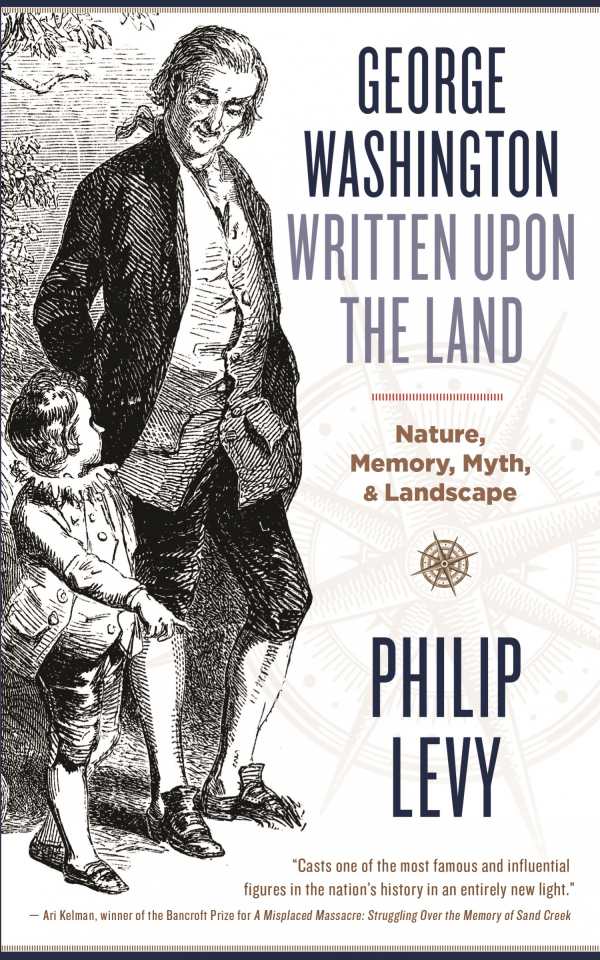George Washington Written Upon the Land
Nature, Memory, Myth, and Landscape
- 2015 INDIES Finalist
- Finalist, History (Adult Nonfiction)
By George, we hardly knew ya.
One of the great lamentations of American historians is the dearth of knowledge about George Washington’s childhood. Washington rarely talked about it later in life, and we’re left with fabrications about hatchet jobs on cherry trees and other parables created by Mason Locke “Pastor” Weems, an early, particularly inventive Washington chronicler. Even while his tales have stuck permanently to the Washington persona, Weems and others—more than twenty-one thousand books list George Washington in their title—had little else to go on, and they were thrilled to fill in the gaps in knowledge with their own speculations and projections.
Much more is known about Ferry Farm, Washington’s boyhood home, thanks to Philip Levy, part of a National Geographic Society team that discovered and excavated the Virginia site in 2008. Levy is the author of Where the Cherry Tree Grew (2013) and the newly released George Washington Written Upon the Land, a sort of archaeological study enhanced by the “creative processes and the varied kinds of historical meaning” left in the vacuum of actual knowledge about young George. “This book,” writes Levy, “stems essentially from one question that I have been considering ever since I realized there was no escaping Weems at Ferry Farms: What does it mean for a real landscape to be defined by a fictional story?”
Levy writes beautifully and ties together an untold number of unlikely threads while pursuing his ideas in satisfying directions. In an intriguing final chapter, he even speculates on Washington’s connection to the onset of human-caused climate change, and links the cherry-tree fable to Jewish ethics and how man relates to the material world.
No less the legend, George Washington seems a bit more human and contemporary under Levy’s gaze.
Reviewed by
Matt Sutherland
Disclosure: This article is not an endorsement, but a review. The publisher of this book provided free copies of the book to have their book reviewed by a professional reviewer. No fee was paid by the publisher for this review. Foreword Reviews only recommends books that we love. Foreword Magazine, Inc. is disclosing this in accordance with the Federal Trade Commission’s 16 CFR, Part 255.

